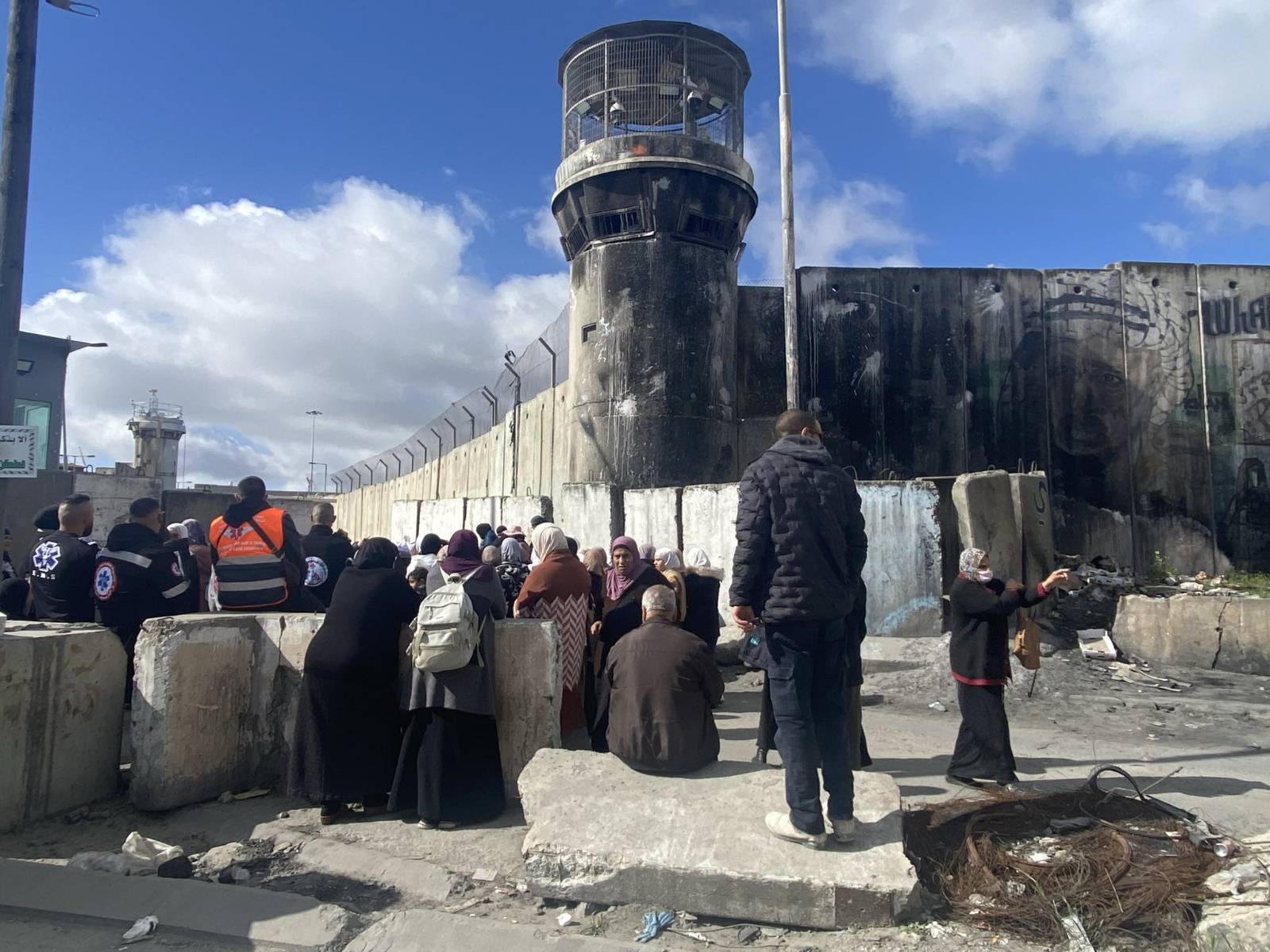Category: Reports
-
Illegal Israeli Settlers Continue Attacks on Shepherds in Masafer Yatta
23 March 2024 | International Solidarity Movement | Masafer Yatta March 21. @ISM On March 20 and 21, Palestinian shepherds from the village of Umm Fagarah in Masafer Yatta faced violent attacks and incursions onto their grazing lands by illegal Israeli settlers. On the 20th March an armed settler, from the illegal outpost Jebel Dov,…
-
Second Friday of Ramadan at Qalandia Checkpoint
22 March 2024 | International Solidarity Movement | Qalandia checkpoint Palestinians perform Friday mid-day prayer outside of Qalandia checkpoint this morning while held at gunpoint by Israeli occupation soldiers, after being forcefully denied their right to enter Al-Quds to pray at Al-Aqsa. People trying to enter were again met with an intensified militarisation of Qalandia…
-
Deceptively “quiet” first week of Ramadan in Jerusalem: a result of restrictions at Qalandia checkpoint
19 March 2024 | International Solidarity Movement | West Bank/East Jerusalem Stories from Israeli and international press extoll a safe and unencumbered celebration of the first week of Ramadan for the thousands of Palestinians with Israeli or Jerusalem ID cards, who were allowed entry to Al-Aqsa in most cases with minimal delay. Unfortunately, Palestinian Muslim…



